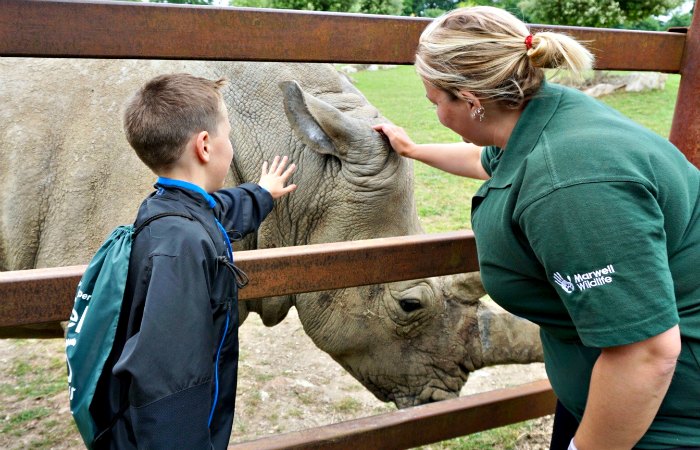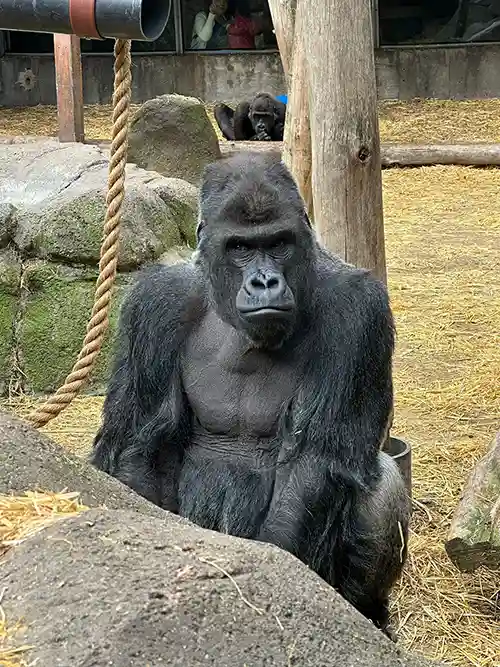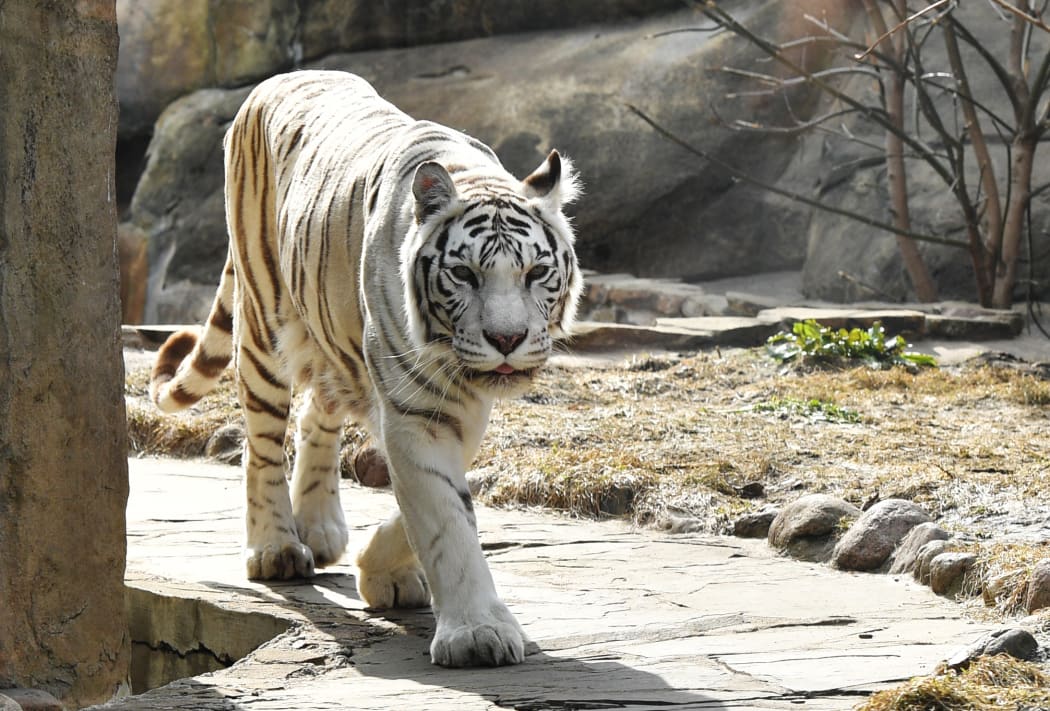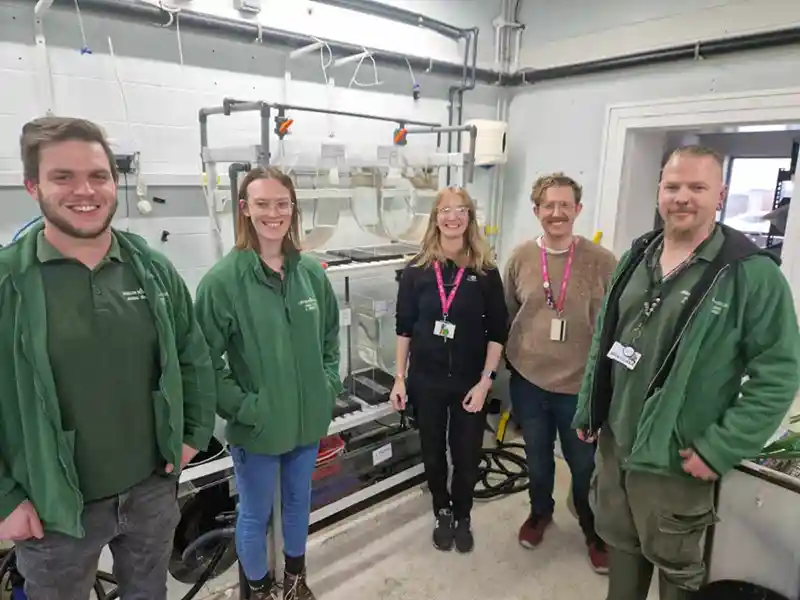"The achievement of a nation and its ethical progress can be evaluated by the way its animals are treated." - Mahatma Gandhi
Do you like animals and imagine working in a zoo? Zoo keepers are key in safeguarding wildlife and taking care of animals. At locations like the Zoological Society of London (ZSL), over 20,000 animals get the care they require from specialists.
To become a zoo keeper, you require effort, education, and a love for animals. This task is amazing, letting you work with many species and assist with crucial conservation work. If you're into wildlife or animal welfare, zookeeping might be best for you.
Beginning your zoo keeper career means learning what's required. This guide will cover education, experience, and more. It's all you need to understand to start a fulfilling zookeeping career.
Exploring what a zookeeper does exposes a function filled with obstacles and rewards. They concentrate on animal welfare and preservation. Zookeepers work hard to keep animals healthy and pleased in their care.
A zookeeper's day is filled with essential jobs:
Zookeepers work outside in all type of weather condition. They manage both indoor and outdoor spaces. The job needs being healthy and able to handle the needs of looking after animals.

"Being a zookeeper is more than a job - it's an enthusiastic commitment to animal care and conservation."
Zookeepers can specialise in numerous animal groups:
Your function might involve dealing with 2-5 different animal species. This needs a great deal of knowledge and the capability to adapt.
To be a leading zookeeper, you require more than simply a love for animals. Your job will be tough and need you to and people well. You'll likewise require to understand animal behaviour.
What zoos try to find in individuals consists of:
Getting hands-on experience is essential to mastering this function. You'll require to reveal:
"A terrific zookeeper links science, empathy, and preservation in every interaction with animals."
You need to learn about animal nutrition, behaviour, and standard vet care. Most zookeepers learn through training, volunteering, and zoo continuous learning.
Zookeeper work is not simply a job. It's a big commitment to teaching about wildlife and assisting preservation. Your enthusiasm and effort will make you stand apart in this fulfilling career.
Beginning a profession as a zookeeper requires cautious planning and education. You need to initially comprehend the educational needs and training courses. These will turn your love for animals into a job.
To be a fantastic zookeeper, you require a strong academic base. A lot of jobs try to find particular certifications:
Getting unique accreditations can really help you in your zookeeper profession. Essential ones include:
Getting hands-on experience is key in zookeeper training. Numerous places offer terrific possibilities:
Pro suggestion: Create a detailed portfolio to show your animal care abilities. It will help you in task applications.
Getting hands-on experience is key for those wanting to be zookeepers. The job is really competitive. So, it's important to start building a strong base in animal care.
Your journey begins with finding ways to work directly with animals. This is a tactical step.
"Experience is the very best instructor in animal care" - Wildlife Conservation Experts
Here are effective methods to acquire experience dealing with animals:
Offering is a fantastic way to find out about animal behaviour and care. Many zoos and animal shelters are looking for people who wish to find out. These places offer excellent opportunities to get hands-on experience and show your devotion to animal welfare.
Here are some tips to maximize your experience:
Keep in mind, practical experience makes you stand out in the zookeeping world. Each time you work with animals, you find out more. This increases your chances of getting a job in animal care.

Starting a profession as a zookeeper is interesting. It provides numerous chances to grow and specialise. Your journey starts with understanding the various paths in this field.
Entry-level tasks in zookeeping are a fantastic start. They give you hands-on experience. Zoos look for candidates with:
As you get experience, your career can grow. You can move up to:
"Continuous knowing and useful experience are crucial to advancing in your zookeeping profession."
You can also pick unique areas like:
About 25% of zookeepers get advanced degrees in zoology or animal conservation. Getting Level 4 credentials can increase your possibilities for senior roles and research study.
Becoming a zookeeper implies you'll work more than simply regular hours. You'll face hard physical challenges and require to be flexible, consisting of weekends and holidays. Zoos are open every day, so you'll frequently work when others relax.
"Zoo keeping is not a normal 9-to-5 job-- it's a way of life of devoted animal care and dedication."
This job is physically demanding. You'll work outside in any weather condition, lifting heavy products over 50 pounds. Your jobs may include:
Shifts can start as early as 5 AM and go late into the night. You'll be on your feet most of the time, moving between animal zones. Weekends and holidays are part of the job, requiring great deals of endurance and devotion.
Despite the obstacles, this job has excellent benefits. You'll grow strong, both physically and emotionally. You'll likewise make incredible connections with extraordinary animals.
Being a zookeeper includes its own set of obstacles. It's crucial to understand how to keep both animals and staff safe. This means following rigorous health and wellness guidelines.

Zookeepers face a distinct environment where safety is crucial. Research studies reveal that health and safety are now as crucial as the zoo's primary work.
There are several methods to manage dangers in zoos:
Understanding which animals are most hazardous is vital. Huge animals like rhinos can be very dangerous. There have been cases where zookeepers got seriously harmed.
Safety isn't just about using equipment - it's about understanding animal behaviour and staying alert.
Zookeepers need to wear the ideal gear, including:

Getting vaccinated against diseases like hepatitis B and rabies is likewise crucial. It helps keep zookeepers healthy in their tough job.
Considering a career in zoo keeping? It's crucial to understand about wages and the job market. The field is growing, with more opportunities in the UK.
Let's take a look at what zoo keepers can earn at various phases:

The job outlook for zoo keepers is great. The sector is expected to grow by 5% in the UK by 2029. This indicates around 3,910 brand-new jobs will be readily available.

"The Association of Zoos and Aquariums supports expert development for zoo keepers," a report states.
Salaries differ based on several things:
While the pay may not be high, the joy of working with animals is valuable. The average salary is around ₤ 17,000. However, overall incomes can be in between ₤ 13,000 and ₤ 27,000 a year.
Starting a career in animal care is an amazing journey. It needs devotion, enthusiasm, and a love for learning. With over 350 zoos and wildlife places in the UK, there are lots of task opportunities. You'll get to deal with incredible animals and assist safeguard wildlife.
To be a zoo keeper, you require more than just love for animals. You must have a mutual understanding of biology, have the ability to interact well, and constantly want to find out more. You'll gain hands-on experience, discover animal welfare, and develop a deep regard for nature. About 3,000 individuals in the UK have discovered fulfilling careers in this field.

Your success in zoo keeping comes from blending science with a love for animals. Whether you're interested in mammals, birds, or marine life, this task lets you aid with conservation. Every day will bring brand-new difficulties and learning chances that will improve your skills and knowledge.
If you like animals and wish to assist protect wildlife, zoo keeping might be for you. Take on the challenge, remain curious, and turn your enthusiasm for animals into a rewarding profession.
No Data Found!

